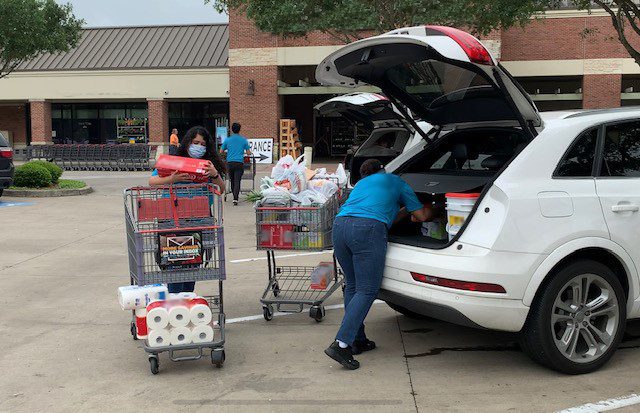AARP Hearing Center
COVID-19 has changed our daily routines. It is affecting the way we dine out, exercise, and shop. When it comes to grocery shopping, which is a necessity, what can we do to stay safe? Do I leave non-perishable items outside for 24-hours? Do I wipe down food containers and then wipe down the kitchen counter where I placed the bags? And what about produce? What is the safety protocol I need to follow when unpacking those items?
Dr. Keisha Davis, a board-certified pathologist, and cytopathologist says the way to stay safe while and after grocery shopping is to be informed and remember good hygiene.
“The best thing that we can do is to continue following the precautions set by the Centers for Disease Control and Prevention (CDC) and the U. S. Food and Drug Administration (FDA), which is washing our hands,” said Dr. Davis.
When asked if leaving non-perishable foods in our cars or SUVs for 24-hours was a good safety practice, Dr. Davis said no.
“It’s not a good practice because some things can actually survive at a higher temperature,” said Dr. Davis. “When you are leaving your car, it is important to take all your food out of our car.”
This practice doesn’t necessarily have to do with the coronavirus, said Dr. Davis, but it does have to do with keeping your food and you safe. It’s a much different story when it comes to wiping down grocery store bags and the kitchen countertops where you place them once you arrive home from the store.
“It’s not that the virus lives on these things, but if someone were to sneeze or have the respiratory droplets on the container…the virus can stay there and on some plastics up to five to seven days,” said Dr. Davis. “To fight it, we wipe it. By wiping it (with a disinfectant wipe) you’re killing it on contact.”
That is the same for the counter where you placed the bag once in your home, said Dr. Davis. She adds that if you want to reuse the plastic grocery bag, you will need to clean the bag inside and out. You don’t necessarily have to do that with produce said, Dr. Davis. She adds that you should not forget to wash your hands before and after cleaning your bags and don’t forget to wash your produce too.
“There is no transmission from produce,” said Dr. Davis. “…it is possible that the virus could survive on objects (plastic wrappers or other types of wrappers for produce), therefore, you need to follow the FDA (U.S. Food and Drug Administration) food safety guidelines. This means you clean your food, you separate it. You separate the seafood from the meat from the vegetables and fruit. So you clean, separate, cook the food you’re going to cook and chill.”
Before you walk into the grocery store, Dr. Davis said you should put on your mask.
“When we’re out in public it is recommended that you wear a mask. It’s not because we think we’re going to get it (coronavirus) from someone else, but we have to consider that everybody may have the virus,” said Dr. Davis. “We have to consider the fact that not everybody can get tested so we’re wearing the mask so that we keep ourselves from giving someone else the virus.”
Dr. Davis said to be sure to take off the mask holding the outside of the mask so that you don’t contaminate the inner part of the mask that touches your face. As for gloves, Dr. Davis said gloves are only necessary when you’re dealing with patient care and said you should wash your hands often and use hand sanitizer too.
To find out the latest information on the spread or treatment of coronavirus also known as COVID-19, go to the Centers for Disease Control and Prevention or the U. S. Food and Drug Administration. AARP also has you covered with coronavirus resources. You can get that info at www.aarp.org/coronavirus.
































































